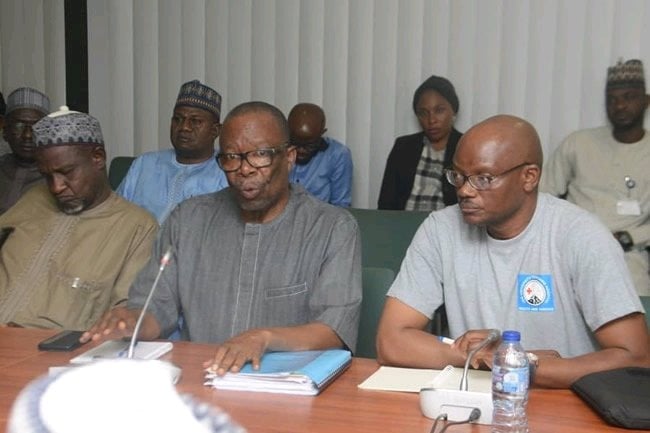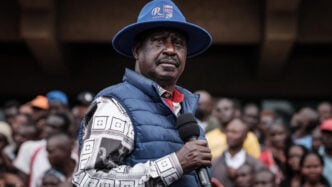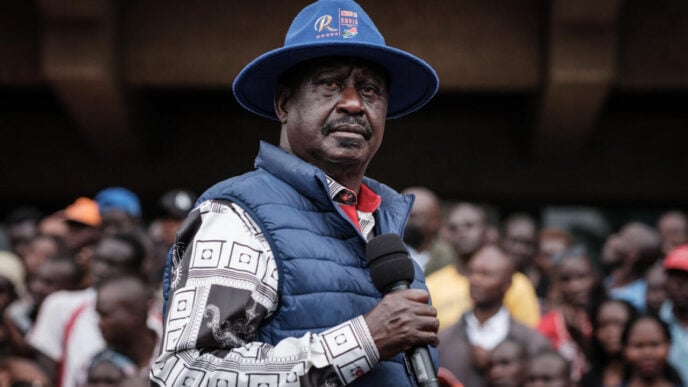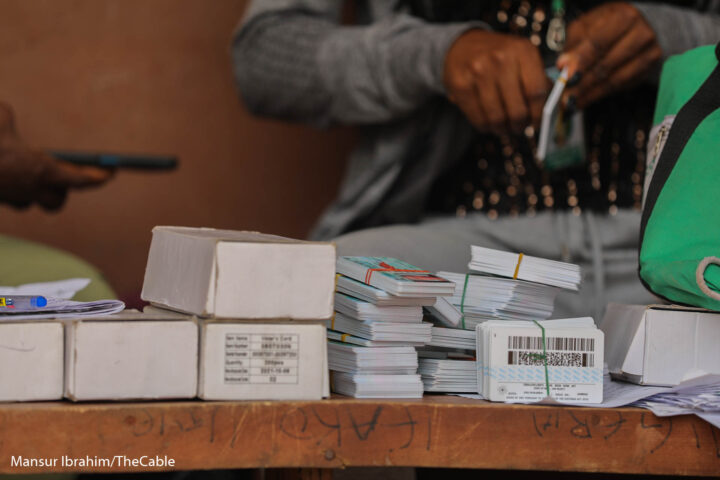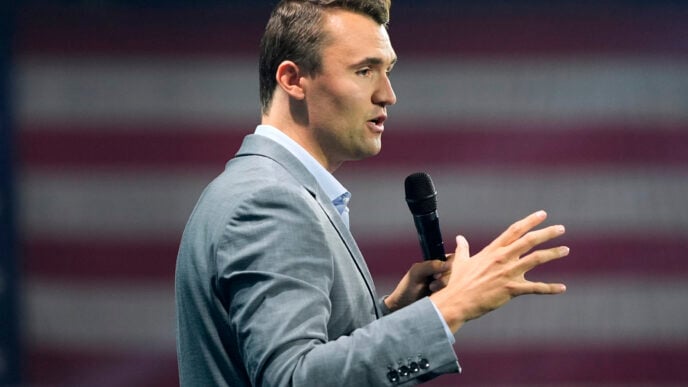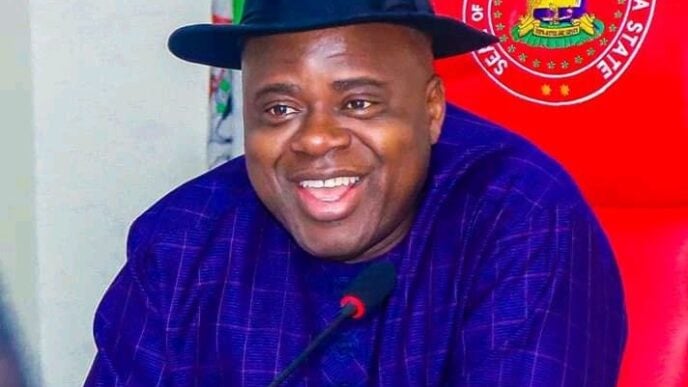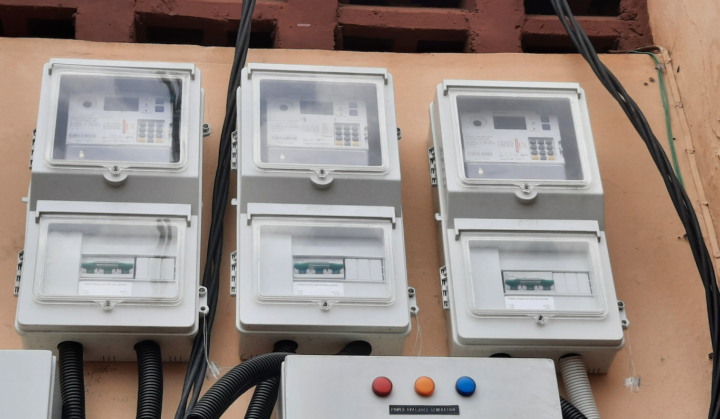Emmaniuel Osodeke and other ASUU members.
Once again, the federal government has declared a “no work, no pay” policy for striking lecturers across federal universities in Nigeria as a countermeasure for the suspension of academic activities.
The policy stipulates that any staff member who is unavailable for work should not receive a salary, particularly during the duration of the strike.
On Sunday, the leadership of the Academic Staff Union of Universities (ASUU) directed its members across schools to commence a two-week warning strike, starting October 13, over unpaid allowances, among other longstanding issues.
Public tertiary school unions, including ASUU, have been at loggerheads with the government over the service conditions of lecturers.
Advertisement
The academic union has been demanding the signing of the renegotiated 2009 FGN-ASUU agreement on service conditions, the release of withheld salaries, and sustainable funding for the revitalisation of public universities.
They are also requesting the payment of outstanding 25-35 per cent salary arrears and promotion arrears spanning over four years.
Tunji Alausa, the minister for education, had pleaded with ASUU earlier this month to halt the strike action.
Advertisement
But Chris Piwuna, the ASUU president, insisted that only concrete action would make its members back down.
ANOTHER ‘NO WORK, NO PAY’ POLICY TO BE ENFORCED
On Monday, Alausa directed federal university vice-chancellors to enforce the “no work, no pay” labour policy, arguing that ASUU had been uncooperative to prevent the strike.
The education ministry maintained that the government will uphold the policy as an “extant labour law” if university academic activities are affected.
The ministry said dialogue remains the most effective way to resolve disagreements, stating that the government is “open to engagement at any level” to prevent “unnecessary disruption.”
Advertisement
The ministry further appealed to all academic unions to choose “partnership and dialogue rather than confrontation.”
THE LAST TIME FG ISSUED ‘NO WORK, NO PAY’ POLICY
In 2022, the last time the federal government enforced the “no work, no pay” policy against ASUU, the lecturers had gone on an eight-month strike.
The 2022 strike, spanning February to October, made it the 16th in 23 years for the academic union.
Several meetings between ASUU and the federal government ended in an impasse, leading to street demonstrations at the national assembly.
Advertisement
Chapters of ASUU at the Ahmadu Bello University (ABU), the University of Lagos (UNILAG), and the University of Port Harcourt (UNIPORT) were among varsities that joined the movement at the time.
Although the absence from work had lasted for eight months, in September of the same year, the National Industrial Court (NIC) stopped the union from continuing with the strike, pending the determination of a suit.
Advertisement
The federal government had filed a suit, insisting that the lecturers would not be paid for the period they were on strike in accordance with the “no work, no pay” policy.
On May 30, 2023, the industrial court upheld the government’s position on the matter.
Advertisement
Reacting, ASUU also filed a suit at the NIC, stating the government’s “discriminatory, unfair, and illegal treatment” of its members.
In October 2023, President Bola Tinubu partially waived the “no work, no pay” order, leading to the release of four months of the eight-month pay of the withheld salaries.
Advertisement
Tinubu stated that the waiver was to manage the difficulties being experienced during the implementation of key economic reforms in the country.
The president added that as part of the signed document of understanding (DoU), the waiver will be the last one to be granted to ASUU, and other education sector unions.
Payment for the remaining four months from the remaining withheld salaries is part of the union’s demands for the latest strike.
The government is threatening to re-enforce the “no work, no pay”, while also declining to pay for the pending four months from 2022.
OSODEKE: FG YET TO IMPLEMENT OUR 11-MONTH OLD COMMITTEE REPORT
In a chat with TheCable, Victor Osodeke, the former ASUU president, revealed that the government set up a negotiation committee in August 2024.
Osodeke said the committee submitted its report since November 2024, but the government have “failed to acknowledge or implement the report”.
The ex-ASUU president said the union gave 21-day and 12-day notices to the government before the strike.
Osodeke revealed that days before the union embarked on the strike action, the government turned its bargaining agreement into a special report, a decision he described as “very annoying.”
‘WE WILL ALSO IMPLEMENT ‘NO WORK, NO PAY’
Osodeke said the government must understand the implications of the “no work, no pay” policy on the academic system.
He maintained that if the government insists on the “no work, no pay” policy, the union will also initiate a “no pay, no work” decision.
“The difference between academics and other sectors is this, in the academic sector, there should not be anything like no work, no pay because when you come back from a strike, you have to do that work,” he said.
“But for academics, when you are on strike, maybe you are on strike when the exam is about to begin. If the government says no work, no pay, on average, when the workers come back, they should allow that examination to go and start a new semester.
“If you are just six weeks into the semester before the exam, when you come back, you are going to start from where you stopped at six weeks and complete it.
“You can see that all the universities have made up all the backlog of work. We are now entering 2025/2026 session. We have not completed that work they said we did not do.
“Academics is not an hourly job or a monthly job. It is a systematic job. But if the government wants to insist that is what they want, when we come back, we will say no pay, no work.
“For that period, if you do not pay us, we are not going to do that; we will leave them. And at the end, the students and the Nigerian parents will suffer because let us assume you are starting an exam and you come and say, no, let us start a new semester. That examination is gone.
“When you are on strike and come back, you have to go back to where you started and complete the work.
“This issue started from the last regime. That is more than two years ago. When they came back, they set up a committee in August 2024 to negotiate with us. That committee finished the assignment in November 2024, 11 months ago.
“The government should be serious about Nigerian universities. It will not take up to three days to resolve this problem.”
